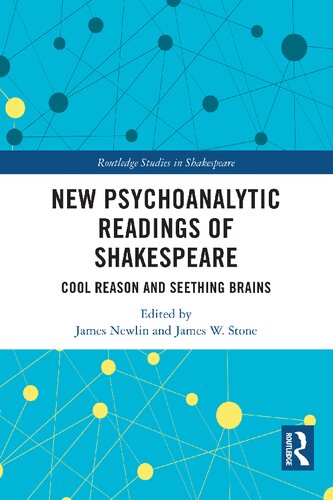

Most ebook files are in PDF format, so you can easily read them using various software such as Foxit Reader or directly on the Google Chrome browser.
Some ebook files are released by publishers in other formats such as .awz, .mobi, .epub, .fb2, etc. You may need to install specific software to read these formats on mobile/PC, such as Calibre.
Please read the tutorial at this link: https://ebookbell.com/faq
We offer FREE conversion to the popular formats you request; however, this may take some time. Therefore, right after payment, please email us, and we will try to provide the service as quickly as possible.
For some exceptional file formats or broken links (if any), please refrain from opening any disputes. Instead, email us first, and we will try to assist within a maximum of 6 hours.
EbookBell Team

5.0
98 reviewsIt has been over two decades since the publication of the last major edited collection focused on psychoanalysis and early modern culture. In Shakespeare studies, the New Historicism and cognitive psychology have hindered a dynamic conversation engaging depth-oriented models of the mind from taking place. The essays in New Psychoanalytic Readings of Shakespeare: Cool Reason and Seething Brains seek to redress this situation, by engaging a broad spectrum of psychoanalytic theory and criticism, from Freud to the present, to read individual plays closely. These essays show how psychoanalytic theory helps us to rethink the plays’ history of performance; their treatment of gender, sexuality, and race; their view of history and trauma; and the ways in which they anticipate contemporary psychodynamic treatment. Far from simply calling for a conventional "return to Freud," the essays collected here initiate an exciting conversation between Shakespeare studies and psychoanalysis in the hopes of radically transforming both disciplines. It is time to listen, once again, to seething brains.